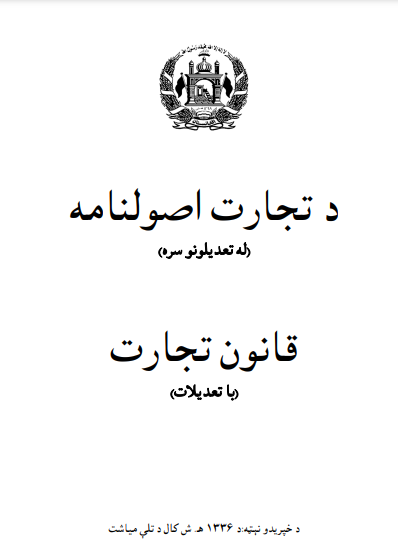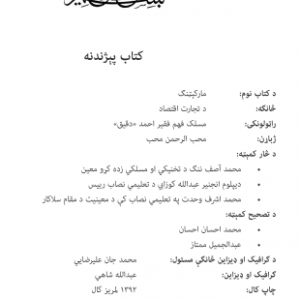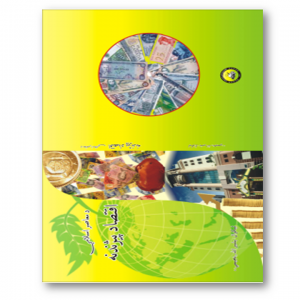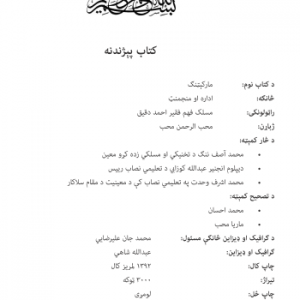About (د تجارت اصولنامه): You can read short details of the book above. If You want to get the book (د تجارت اصولنامه) Road Alignment and Survey), than just click on DOWNLOAD FREE Bottom, wait and the download will start to your Mobile/PC.
More from Easylibrary.org: د مکتب نصاب کتابونه, Afghanistan Provinces & Districts Maps (Pdf)
Quotes
Memories of a rebellion
You may say about the Mughal culture of Surrey that it was declining, it was the culture of the feudal class and it was out of touch with time. But you will accept that the traditions and values created by the previous generations were carried with them.
However, there was no creativity left in this culture and the society was stagnant, but despite its weaknesses, it had culture and grace, a spirit of tolerance and a sense of respect for others. In fact, it was a common culture that was developed and developed as a result of the joint efforts of different nations and peoples. This culture made all the residents of Delhi united as members of a community and it was perfect that the prominent classes and elites were fully satisfied with the existing cultural and social environment of the city despite the political instability. Some of them were getting enough income from their jagirs, some others were getting their wages due to their work in Red Fort. Others served the East India Company with integrity and were respected in the community.
When the city was taken by the British, there was no protest against the occupiers. People did not see any problem in accepting the new government. The British also fell in love with the city and tried to adopt the culture of this place. They married Indian families, built harems like Indian elites, learned Persian and Urdu languages and some of them recited poems in these languages. They dressed like the local people and smoked a pipe. This was the beginning of a new Anglo-Indian culture.
When the rebel soldiers from Meerut arrived in Delhi in May 1857 to stand by the Mughal emperor against the British, the residents of the city did not like this disturbance. To the majority of the people of the city, these soldiers were uncivilized and uncivilized. Unaware of the centuries-old culture of the Mughals, as soon as they came to Delhi, the Turks violated the royal customs and traditions of Sari Kala. They did not learn to respect the nobles or the emperor. In a short time, they destroyed all the values that were equal to the nature of the nobility.
In the presence of this army of peasants, the idea of an army, which was discussed in the royal palaces and court houses, became insignificant. This blow to the culture and tradition of the Mughal elites was a bigger blow to them than their political defeat, because the last bit of privilege and identity was destroyed. This incident made them suffer from spiritual death and they saw their helplessness in maintaining their values and culture.
After the defeat of the rebel army and the city was finally captured by the British, the city faced further destruction. The British soldiers committed mass murders, raped women and looted the property of the citizens. It was a punishment for rebellion.
The British authorities did not stop at just executing and looting the people, but ordered the evacuation of the city. They systematically demolished the buildings of the city. He turned the Red Fort into a military fortress, which ended its cultural and social importance. Soldiers moved in Jama Masjid. The mosques of Delhi were empty of prayers. The heated markets cooled down and the dust of indifference fell on the gardens.
Zaheer Dehlavi says in his book (The Story of Ghadar) that he took the gates from Kabul to Sari Qala and from Jama Masjid to Delhi Gate, through Belaqi Begum Street, Khanum Ka Bazar, Khas Bazar, and Khan Duran’s mansion. Thousands of houses were destroyed and destroyed. Both the city and its inhabitants paid the price of rebellion.
Read more: Afghanistan Jobs , Articles ,+Publish your Books







Reviews
There are no reviews yet.